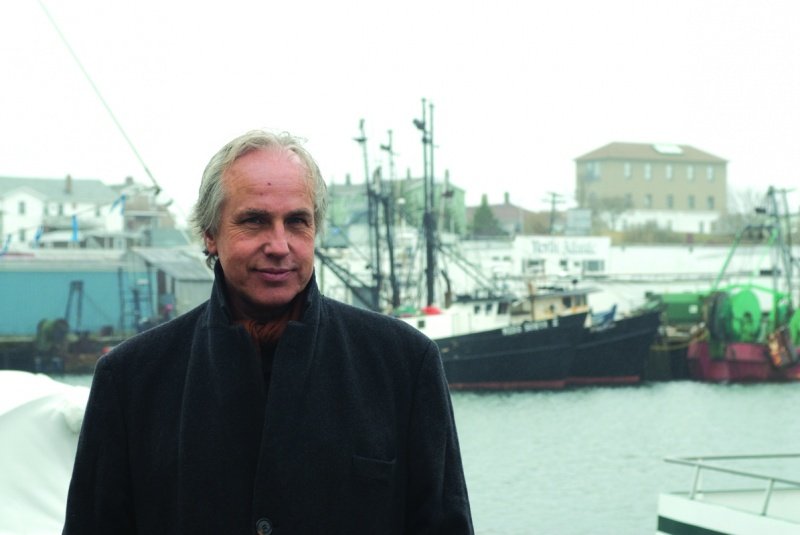The Sound of Truth: Writers for Democratic Action, Here and Elsewhere
In memory of Todd Gitlin
In the run-up to the 2020 presidential election, a handful of anxious writers (Paul Auster, Sophie Auster, Peter Balakian, James Carroll, Carolyn Forche, Todd Gitlin,* Siri Hustvedt, and myself) gathered together on Zoom to share our concerns about what might happen in November. Was there anything we could do in response to the abuses of power occurring daily under the lawless rule of our last president? We were soon joined by three young writers—Julia Lattimer, Shuchi Saraswat, and Tara Skurtu. We then did what writers always do: we wrote articles and editorials and, working with a number of bookstores nationwide, we organized panels, focusing particularly on those swing states where we anticipated problems at the polls. And so Writers Against Trump was born. We quickly discovered we were not alone in our concerns. Before we knew it, some 2,500 other writers joined us in our efforts in the somewhat grandiose-sounding task of supporting democracy. This includes 300 members outside the US.
After the elections, believing we’d achieved our objective, I considered leaving the group, but the grim events of January 6th, when, spurred on by the former president, a mob attacked Congress in an attempted coup, I realized our work had just begun. The issue at hand was really nothing less than the survival of democracy itself. And so we morphed from WAT to WDA: Writers for Democratic Action. By then, several other writers had joined our efforts, including Mitchell Kaplan, Jill McCorkle, Rachel DeWoskin, and Robin Davidson. Our work now focuses on organizing ways to make sure all eligible voters get to the polls in the midterms.
But, while the terms of today’s struggle feel novel, the waters of what Jefferson called “the boisterous sea of liberty” have always been a challenge to navigate.
Some two hundred years ago that visionary diagnostician, the French nobleman Alexis de Tocqueville, traveled across the United States visiting its prisons, its churches, and its city halls to study our institutions. Four years later he published his classic Democracy in America in which he confidently identified the fundamental faultline in our political system: To a stranger, the domestic ambitions of Americans at first appear incomprehensible…. But when he studies the secret impulses governing the factions in America, he sees that most are allied with one of two divisions which have always existed in free communities… the object of one is to limit, and that of the other, to extend, the authority of the people.
It’s essential to remember that the democratic impulse was not the common ground on which this country’s founders met. Our second president, John Adams, wrote, in a letter to his wife: Democracy has never been and never can be so durable as aristocracy or monarchy; but while it lasts, it is more bloody than either. … Remember, democracy never lasts long. It soon wastes, exhausts, and murders itself. There never was a democracy yet that did not commit suicide.
Adams, alas, seemed resigned to this self-destructive impulse he imagined embedded in democracies. Not all of us are quite so sanguine or so ready to surrender to perceived inevitabilities. It is, after all, hard to see the mob assaulting the capitol on January 6th in a failed coup attempt as reflecting an aristocratic impulse. But if the arts teach us anything it’s to remind us not to be deceived by appearances.
That’s why, over the centuries, it’s this nation’s writers who’ve articulated the democratic impulse more passionately and persuasively than even our most committed political leaders. The voices of the people are best heard in the work of our poets, from Wheatley to Whitman to Howe. And the diagnoses of our forever troubled national soul are best unfolded in our greatest fictions, from Melville and Crane to Morrison and Shacochis—all of whom tell lies that lie deeper than the truth. In an age bathing in its own bullshit, truth is that little word I want to emphasize. As poet Czeslaw Milosz once put it:
In a room where
people unanimously maintain
a conspiracy of silence,
one word of truth
sounds like a pistol shot.
It is our tragedy that the room in which so many silent conspirators have gathered happens to stand on Capitol Hill.
The events that took place on January 6th in Washington, D.C., reminded me of what happened in Moscow in 1991 when Gorbachev’s vice president organized an attempted coup against his own government. That coup was prevented when tens of thousands of civilians poured into Moscow’s streets to protect the White House, which, coincidentally, is the name of the building housing the Russian Government. That event was followed by a secret meeting in Belarus at which the leaders of Russia, Ukraine, and Belarus declared the dissolution of the Soviet Union. The Soviet flag was lowered for the last time on December 25, 1991.
That moment spurred a triumphalist howl in the so-called West. Democracy and capitalism had proven their superiority. They had prevailed. Thirty years later, just how does that victory look? Where are we?
As I write this, Russian troops are massed along Ukraine’s eastern border and are gathering to the north in Belarus. Ukraine and the Baltics are the only true democracies among the former Soviet republics. If ever one wants proof that history teaches some people nothing, we need only to look to this region where, between 1933 and 1945, some fourteen million civilians died in the name of political disagreements and racial hatreds. Prior to that, in 1933, between three and five million Ukrainian peasants were starved to death in a Stalin-made famine to which the West turned a blind eye—thanks in large part to the lies of one man, New York Times’ journalist Walter Duranty, whose reports that all was well, published in the pages of the newspaper of record, earned him the Pulitzer Prize. The Cold War that followed the end of WWII then claimed an additional ten to twenty-five million lives worldwide.
While Western powers discuss sanctions against Russia even as its troops encircle Ukraine, some of us wonder why the conversation remains theoretical. There are many financial instruments the West could deploy to undercut Russia’s imperial ambitions. Cutting off all access to those assets Putin, his daughters, and cronies have stashed in the West would be step one. On the other hand, there will always be those who profit from conflict and war. These include some among our fellow-citizens in the US. And then there are the rest of us, who might shudder and perhaps even write a letter of alarm to our local paper before going back to finish watching Succession.
The fact that the leading democracy in the former Soviet Union is under siege at the same time as democratic norms are being attacked by those in this country ostensibly elected to safeguard them is worth noting. A nihilistic lust for power animates our Republicans and Putin both. But their ruthless indifference to the welfare of their respective (but disrespected) citizens leads me to believe that both the Republicans and the Russians will fail in their efforts.
_____________
*Todd Gitlin, in many ways the leader of our anti-hierarchical little group, died on February 5th. He was a great, exuberant spirit, a brilliant writer, with some 20 books to his credit, including what is perhaps the best survey of that impossible period, The Sixties. A scholar, a journalist, a poet, a sociologist, a teacher, an eternal student who’d majored in mathematics as an undergrad at Harvard, he was an activist unto the last. In his final months he would Zoom into our weekly meetings from the hospital while waiting to undergo chemotherapy. He will be dearly missed. His memory will continue to inspire us in our work.
Askold Melnyczuk’s book of stories, The Man Who Would Not Bow, appeared in 2021. His four novels have variously been named a New York Times Notable, an LA Times Best Books of the Year, and an Editor’s Choice by the American Library Association’s Booklist. He is also co-editor of From Three Worlds, an anthology of Ukrainian Writers. His published translations include work by Oksana Zabuzhko, Marjana Savka, Bohdan Boychuk, Ivan Drach, and Skovoroda. His shorter work, including essays, stories, and reviews, have appeared in The Paris Review, The New York Times, The Missouri Review, The Times Literary Supplement (London), The Los Angeles Times, The Harvard Review and elsewhere. He’s received a three-year Lila Wallace-Readers’ Digest Award in Fiction, the McGinnis Award in Fiction, and the George Garret Award from AWP for his contributions to the literary community. As founding editor of Agni he received PEN’s Magid Award for creating “one of America’s, and the world’s, leading literary journals.” Founding editor of Arrowsmith Press, he has taught at Boston University, Harvard, Bennington College and currently teaches at the University of Massachusetts Boston. Most recently he has been organizing readings in support of writers in Ukraine, as well as interviewing writers for his For the Record series which appears online at Agni Online (https://agnionline.bu.edu/blog/for-the-record-conversations- with-ukrainian-writers/), as well as on Arrowsmith Press’s website.


